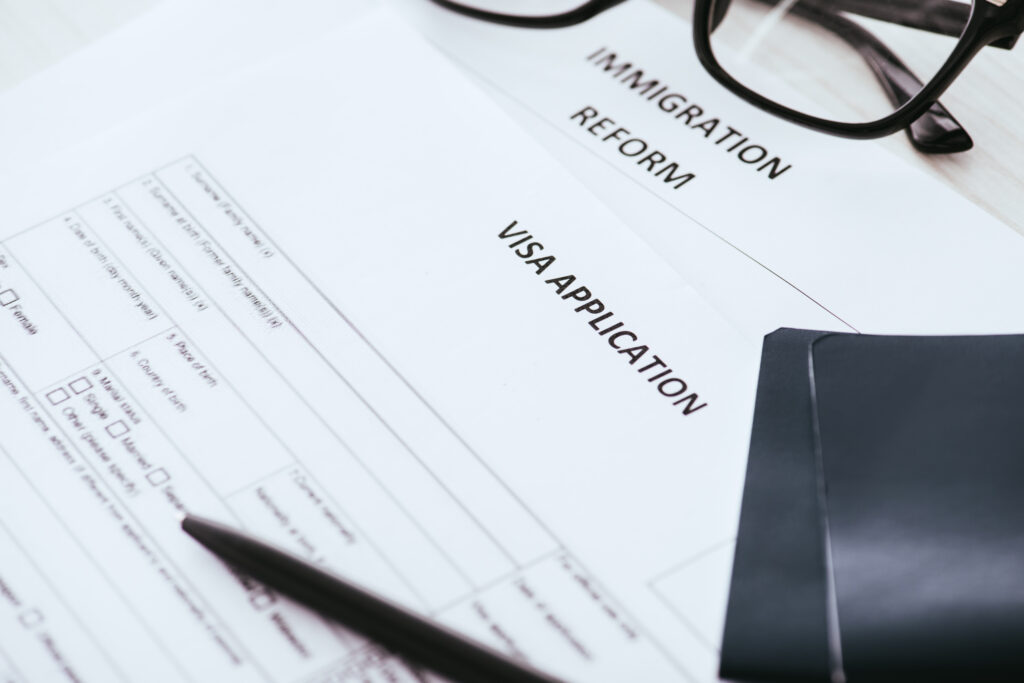Employers with A-rated Sponsor Licences in 2025 are at the very heart of the UK’s skilled migration system. While the headlines in July 2025 may have focused on rising salary thresholds, higher skill levels, and the tightening of visa rules, the real marker of trust between employers and UK Visas and Immigration (UKVI) remains the sponsor licence rating. For workers seeking stability and employers striving for credibility, holding an A-rated sponsor licence is far more than just a tick-box exercise—it is a seal of compliance, confidence, and continuity.
To understand why this matters, think of it as a badge of reliability. An A-rating signals that an employer has met every compliance requirement demanded by UKVI. It shows that they take their obligations seriously, from keeping accurate employee records to ensuring that every overseas hire is working lawfully and within the rules of their visa. In a landscape where rules shift and thresholds climb, an A-rated sponsor licence provides much-needed reassurance.
For employees, this distinction is crucial. Choosing to work for an A-rated sponsor reduces the risk of sudden disruptions to their visa status, because the employer is trusted by the Home Office to play by the book. In practical terms, this means less stress over whether your right to work could be jeopardised by an employer’s carelessness. It’s the difference between building a career on a solid foundation versus one that could crumble at the first compliance inspection.
For employers, the benefits are just as significant. An A-rating demonstrates to potential hires—especially global talent—that the organisation is a safe bet. In a competitive hiring market, this credibility can set businesses apart. It’s not just about being able to recruit from abroad; it’s about attracting the best candidates who value security and professional integrity.
Of course, holding an A-rated sponsor licence doesn’t mean the work is over. Employers must remain vigilant, maintaining meticulous systems and staying alert to policy updates. Compliance visits, reporting duties, and audit trails remain part of the ongoing responsibility. However, rather than being burdensome, this continued diligence acts as a safeguard, ensuring that the employer can keep hiring internationally without disruption.
In 2025, when every aspect of immigration policy feels more closely scrutinised, an A-rating is the steady anchor in shifting tides. It signifies that the employer has not only earned the trust of the Home Office but continues to uphold it daily. Workers can view it as a promise of security; employers can wear it as a mark of excellence.
What Is a Sponsor Licence & Licence Rating?
- A sponsor licence is required for UK employers who wish to employ someone from outside the UK (or someone without settled status) under certain work visa categories (e.g. the Skilled Worker route).
- The employer must apply online, provide necessary documentation, appoint key personnel to manage sponsorship, and commit to following “sponsor duties” and compliance requirements.
Once a licence is granted, it is given a rating: typically, A-rated or B-rated.
What Does “A-Rated Sponsor Licence UK” Mean?
The phrase A-rated sponsor licence UK refers to a licence for sponsorship that has been awarded the highest rating (A) by UK Visas and Immigration. It means:
- The employer is fully compliant (at the time of rating) with UKVI’s requirements for sponsors. These duties include record keeping, reporting changes, ensuring the sponsored roles are genuine and meet skill/salary thresholds, not recouping certain costs from the sponsored worker, and more.
- The employer can issue new Certificates of Sponsorship (CoS) for new workers. Without an A-rating, this can be restricted.
- The employer will appear in the Register of Licensed Sponsors with a listing that reflects they have an A rating. This means visibility and trust.
When employers start with a licence, by default, it is A-rated, assuming the application passes UKVI’s checks.
Changes in 2025 That Make A-Rating Even More Important?
Several changes in the UK immigration rules as of 2025 mean that only employers who consistently meet the stricter standards will be able to carry on smoothly with sponsorship. Key updates include:
- Higher minimum skill level: The Skilled Worker route now generally requires job roles to be at RQF Level 6 (graduate level) unless they are on the Immigration Salary List or Temporary Shortage List, or satisfy transitional provisions.
- Higher salary thresholds: The pay for sponsored roles must meet higher salary minimums. This is both to ensure fairness and to stop the misuse of low-wage roles being imported under sponsorship.
- Transitional provisions becoming more limited: Some roles below graduate level may still be sponsored under certain lists or transitional rules, but those are being limited, with many due to sunset unless continued by the Migration Advisory Committee.
- Stricter reporting, record keeping and sponsor duties: There is heightened enforcement. The Home Office is quicker to downgrade or even revoke sponsor licences if employers fail in their obligations.
These changes mean that being A-rated isn’t just a label—it becomes essential to maintain the ability to attract, recruit, and keep foreign or non-settled skilled workers.
Why Workers Should Prioritise Employers with an A-Rated Sponsor Licence UK?
If you are a worker (international, EU, or non-settled), here’s why it is in your interest to check whether a prospective employer has an A-rated sponsor licence UK:
- Certainty of Sponsorship
Employers with an A rating can issue new Certificates of Sponsorship, which are a central part of visa applications. If an employer is B-rated, or if their licence is in jeopardy, there may be delays, refusals or inability to secure a CoS. - Reduced Risk of Disruption
A-rated employers are less likely to have their licence downgraded or suspended, which can otherwise affect workers (new or existing). If a licence is downgraded, there could be uncertainty about future renewals, or switching employers may become harder. - Compliance Implies Worker Protection
An employer who is meeting UKVI expectations is more likely to handle visa-related obligations properly: paying the correct salary, not charging forbidden fees, ensuring working conditions, keeping accurate records, and assisting with visa or permit renewals. - Transparent & Recognised
Because an A-rated status is publicly visible (via the register of sponsors), you can verify this before accepting an offer. It adds a layer of assurance. - Potential for Settlement Pathways
Under current rules, some visa routes allow settlement (indefinite leave to remain) after a certain time. Knowing your employer is A-rated makes it more certain that your period of stay is properly documented and your employer’s sponsorship duties won’t jeopardise your cumulative residency.
What Happens if an Employer Loses or Is Downgraded from an A-rating?
It is not just a theoretical risk: many employers have had sponsor licences revoked or downgraded in recent years due to non-compliance. Recent statistics show a government crackdown: between 2024 and 2025, a lot of companies had their sponsorship licences revoked.
When an employer is downgraded from A-rated to B-rated:
- They cannot issue new Certificates of Sponsorship (for most purposes). Existing sponsored workers may remain, but new hires can be blocked.
- Business reputation may suffer, which in turn may affect your job prospects or visa processing.
- Regaining an A-rating requires going through a Home Office action plan, paying a fee, and demonstrating improved compliance.
How to Check If an Employer Is A-Rated?
As a prospective worker, you can take a few practical steps:
- Check the Register of Licensed Sponsors on GOV.UK. This register will indicate whether the employer is licensed, and often whether they hold an A-rating.
- Ask the employer directly: Employers should be able to tell you, and may even show you proof or documentation.
- Check the job advertisement or offer: sometimes they will mention “employer holds A-rated sponsor licence”, which is a positive sign.
Practical Implications for Workers in 2025 & After
Given the tighter rules introduced in 2025, here are what workers should keep in mind:
- Skill & Salary Requirements: Make sure the role meets the current thresholds (e.g. graduate-level skills or being on a recognised salary list). If not, the CoS may be refused.
- Timing: Because some roles below graduate level is being phased out or limited via transitional provisions, if you are being sponsored for such a role, check whether this is still permitted under updated rules.
- Dependents: Depending on your role’s level or route, bringing dependents (spouse, children) may have changed. Always check the employer’s support.
- Visa extension/settlement: The documentation and legal standing of your employer matter for long-term status (e.g. settlement). An A-rated employer that meets its obligations helps ensure that years of working legally are accurately counted.
Final Word!
In the end, the message is simple: an A-rated sponsor licence is more than a bureaucratic label—it’s a symbol of trust and stability in the UK’s immigration landscape. For employers, it reflects commitment; for workers, it provides reassurance. As policies shift and requirements tighten, this rating remains the marker of reliability.
If you want to stay ahead of the changes, understand the nuances, and keep your career or business secure, make sure you follow Skilled Worker Mag for insight, clarity, and guidance on every step of the journey.



